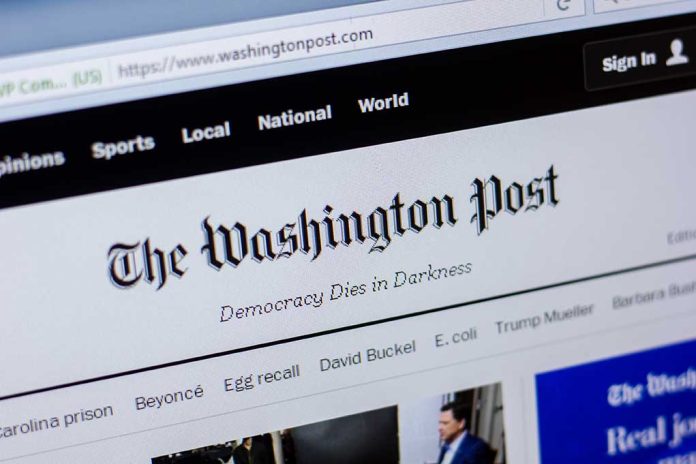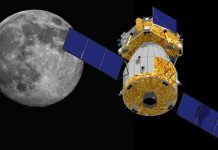
Jeff Bezos takes bold action to reshape the Washington Post amid controversy and financial challenges.
At a Glance
- Bezos personally ordered the Post to drop presidential endorsements, causing internal turmoil
- The decision led to a loss of over 250,000 subscribers and $77 million over the past year
- Organizational changes include appointing Will Lewis as CEO and Sally Buzbee’s resignation
- Bezos defends the move as a principled decision to maintain objectivity and credibility
- The Post faces ongoing challenges in leadership, staffing, and financial stability
Bezos Intervenes in Washington Post’s Editorial Direction
In a surprising turn of events, Amazon founder and Washington Post owner Jeff Bezos has taken direct action to reshape the newspaper’s editorial policies. Bezos personally intervened to prevent the Post from endorsing a presidential candidate, specifically Vice President Kamala Harris, for the presidential election. This decision sent shockwaves through the media landscape and caused significant internal upheaval at the prestigious publication.
The fallout from this decision has been swift and severe. Reports indicate that the Washington Post has lost over 250,000 subscribers, dealing a significant blow to its readership base. Furthermore, the paper has been grappling with financial difficulties, losing a staggering $77 million over the past year. These challenges have raised questions about the future direction and stability of one of America’s most renowned news organizations.
Bezos Defends His Decision
Despite the backlash, Bezos has stood firm in his decision, arguing that it was necessary to maintain the Post’s credibility and independence. In a statement defending his actions, Bezos emphasized the importance of objective journalism and the need to avoid perceptions of bias.
“What presidential endorsements actually do is create a perception of bias. A perception of non-independence. Ending them is a principled decision, and it’s the right one. I would also like to be clear that no quid pro quo of any kind is at work here. Neither campaign nor candidate was consulted or informed at any level or in any way about this decision. It was made entirely internally,” said Bezos.
Bezos has also addressed concerns about potential conflicts of interest arising from his various business interests. He acknowledged the complexities of owning a major newspaper while simultaneously leading other companies that frequently interact with government officials.
Jeff Bezos defends Washington Post’s decision to stop presidential endorsements days before electionhttps://t.co/NwvTpdBtvO
— MSN (@MSN) October 29, 2024
Organizational Shakeup at the Post
In response to these challenges, Bezos has initiated significant organizational changes at the Washington Post. He appointed Will Lewis as the paper’s new CEO, signaling a shift in leadership strategy. This move was followed by the resignation of executive editor Sally Buzbee, further highlighting the tumultuous nature of the ongoing restructuring.
The search for a permanent top newsroom leader is currently underway, with Bezos himself involved in the process. In the interim, Matt Murray, former editor of the Wall Street Journal, has taken temporary control of the newsroom. However, this transition has not been without its challenges, as some staffers have expressed dissatisfaction with Murray’s leadership approach.
These internal changes have led to increased tension and uncertainty within the Washington Post. As one insider revealed, “The level of anger is through the roof, and fear is also through the roof. There’s huge concern that Bezos is going to pull the plug.”
The Road Ahead for the Washington Post
As the Washington Post navigates these turbulent waters, the future remains uncertain. Bezos’s decision to end presidential endorsements and reshape the paper’s editorial direction has caused significant disruption. However, he maintains that these changes are necessary for the long-term credibility and success of the publication in an era of declining trust in media.
“To win this fight, we will have to exercise new muscles. Some changes will be a return to the past, and some will be new inventions,” Bezos wrote. “Criticism will be part and parcel of anything new, of course. This is the way of the world. None of this will be easy, but it will be worth it.”
The coming months will be crucial for the Washington Post as it seeks to stabilize its leadership, address financial challenges, and regain the trust of its readership. Whether Bezos’s bold moves will ultimately revitalize the paper or further erode its standing in the media landscape remains to be seen. What is clear is that the Washington Post is at a critical juncture, and its ability to adapt to these changes will likely determine its future in American journalism.






















